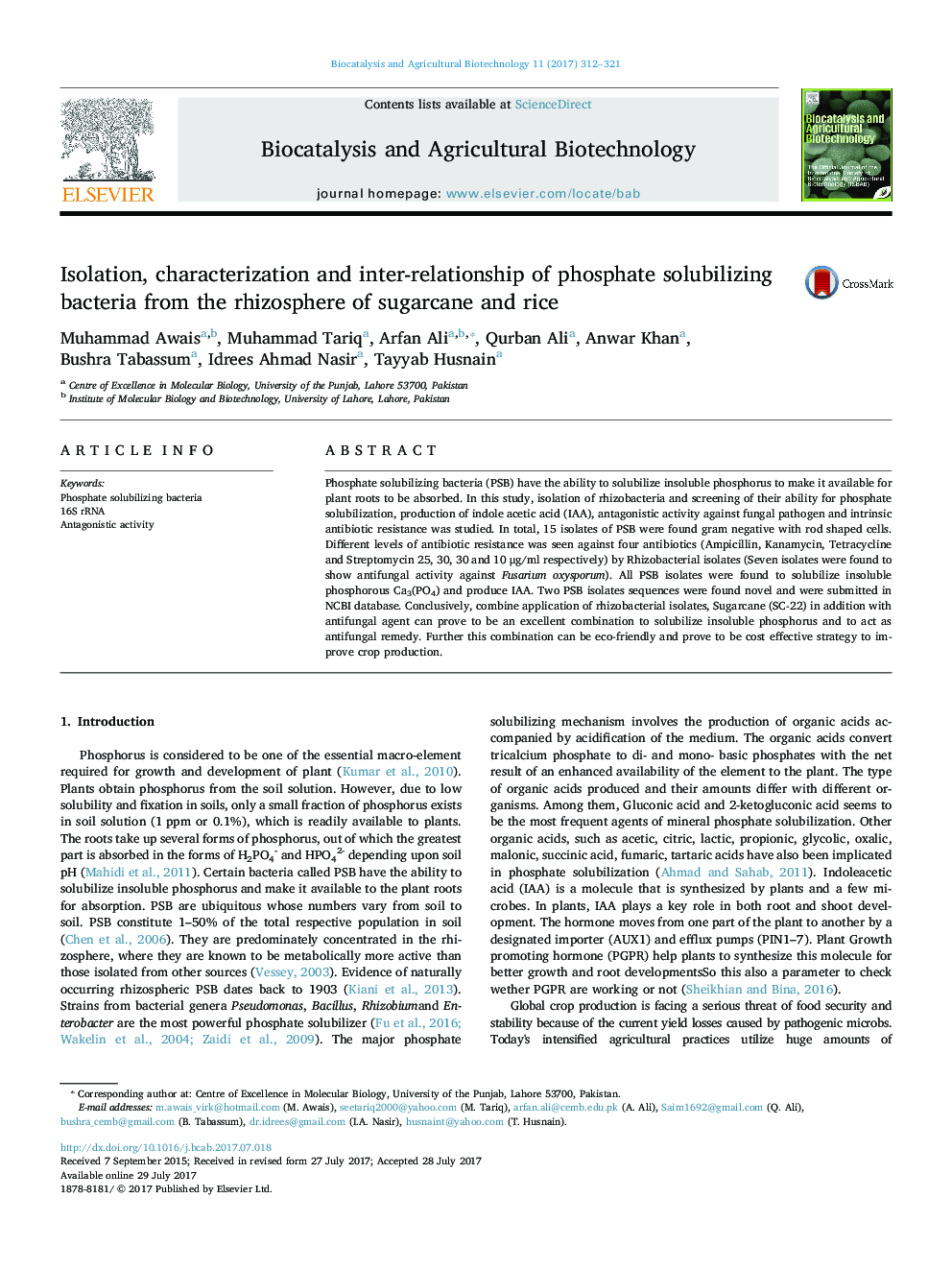| Article ID | Journal | Published Year | Pages | File Type |
|---|---|---|---|---|
| 5520516 | Biocatalysis and Agricultural Biotechnology | 2017 | 10 Pages |
Phosphate solubilizing bacteria (PSB) have the ability to solubilize insoluble phosphorus to make it available for plant roots to be absorbed. In this study, isolation of rhizobacteria and screening of their ability for phosphate solubilization, production of indole acetic acid (IAA), antagonistic activity against fungal pathogen and intrinsic antibiotic resistance was studied. In total, 15 isolates of PSB were found gram negative with rod shaped cells. Different levels of antibiotic resistance was seen against four antibiotics (Ampicillin, Kanamycin, Tetracycline and Streptomycin 25, 30, 30 and 10 μg/ml respectively) by Rhizobacterial isolates (Seven isolates were found to show antifungal activity against Fusarium oxysporum). All PSB isolates were found to solubilize insoluble phosphorous Ca3(PO4) and produce IAA. Two PSB isolates sequences were found novel and were submitted in NCBI database. Conclusively, combine application of rhizobacterial isolates, Sugarcane (SC-22) in addition with antifungal agent can prove to be an excellent combination to solubilize insoluble phosphorus and to act as antifungal remedy. Further this combination can be eco-friendly and prove to be cost effective strategy to improve crop production.
